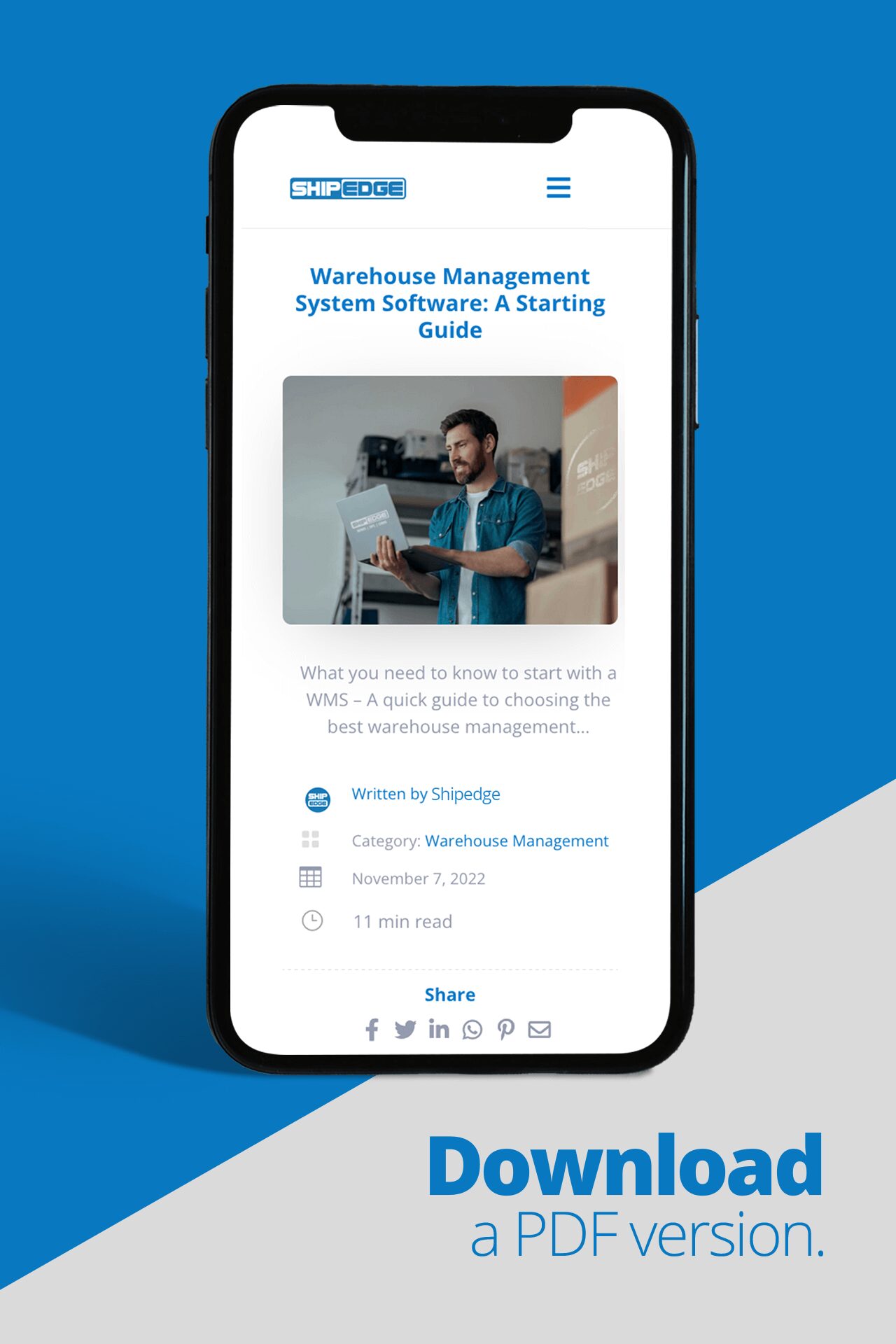The third-party logistics (3PL) industry is constantly evolving. With the rise of e-commerce, globalization, and new technologies, 3PL providers face increasing pressure to expand their services while maintaining efficiency and control over their operations. Scalability has therefore become a crucial factor for 3PLs to remain competitive and meet the ever-growing demands of their clients.
In this guide, we’ll explore the concept of scalability in 3PL operations and provide insights and strategies to help achieve growth without sacrificing quality or efficiency.
Understanding Scalability in 3PL
Scalability refers to the ability of a system to handle a growing amount of work, or its potential to be enlarged to accommodate that growth. In 3PL operations, scalability entails the capacity to expand services and capabilities in response to increasing demands from clients, such as handling more products, entering new markets, or offering new services.
Why Scalability Matters for 3PL Operations
- Meeting Client Needs: As businesses grow, their logistics needs often grow with them. Being able to scale operations allows 3PL providers to accommodate these growing needs.
- Cost Efficiency: Properly scaling operations can help to optimize costs, as it allows for more efficient resource utilization.
- Competitive Advantage: Scalability enables 3PL providers to adapt to market changes and emerging opportunities, keeping them ahead of competitors.
- Risk Management: A scalable operation can adapt to fluctuations in demand, reducing vulnerabilities to market uncertainties.
Discover how our WMS can improve your business
Strategies for Achieving Scalability in 3PL Operations
1. Invest in Technology
Investing in advanced technology solutions is paramount to achieving scalability in 3PL operations. Leveraging technology can automate various aspects of the workflow, improve efficiency, and reduce manual errors.
- Warehouse Management Systems (WMS): Implementing a WMS can automate inventory tracking and order processing, allowing for real-time visibility into warehouse operations.
- Real-time Tracking Tools: These tools enable the monitoring of shipments and provide valuable data that can be used to improve route optimization and customer communication.
- Integration with E-commerce Platforms: Connecting with various e-commerce platforms can enhance order management and streamline fulfillment processes, accommodating growth in online sales.
2. Enhance Collaboration with Partners
Strong collaboration with carriers, suppliers, and other partners is essential for seamless scalability. This collaboration can be fostered through:
- Regular Communication: Open and transparent communication with partners ensures alignment of goals and expectations.
- Joint Planning: Working together on forecasts and planning can lead to more efficient resource utilization.
- Shared Technology Platforms: Utilizing common platforms can enable better coordination and real-time information sharing.

3. Focus on Training and Development
Scalability requires that the workforce be prepared to handle new challenges and opportunities. To ensure that employees are well-equipped:
- Offer Continuous Training: Providing ongoing training on new technologies, processes, and best practices is crucial.
- Promote a Growth Mindset: Encourage employees to think innovatively and be open to change, as this fosters a culture that embraces growth.
- Invest in Leadership Development: Cultivating strong leaders can guide the team effectively through scaling phases.
4. Implement Modular Processes
Creating processes that are modular and adaptable enables easy expansion or modification.
- Standardize Processes: Establishing standardized processes ensures consistency and allows for easier implementation of changes.
- Build Flexibility into Systems: Designing systems that can be easily adapted or expanded helps accommodate growth without becoming overly complex.
- Monitor and Adjust: Regularly review processes to identify areas for improvement, and make incremental adjustments to align with growth objectives.
Your WMS software should be a key player in allowing you to expand freely with minimal bottlenecks.
5. Consider Outsourcing
Outsourcing certain functions can lead to more efficient scalability in 3PLs. This strategy might include:
- Evaluate Core Competencies: Determine what functions are core to the business and what could be outsourced to specialists.
- Select Reliable Partners: Choose outsourcing partners with proven expertise and aligning values to ensure quality control.
- Monitor Outsourced Functions: Maintain oversight of outsourced functions to ensure they meet performance and quality standards.
READ MORE: 3PL vs 4PL Logistics: Understanding the Fundamentals
6. Monitor and Analyze Performance
Effective scalability requires ongoing monitoring and analysis.
- Utilize Analytics Tools: Employing analytics tools can provide insights into performance trends and areas for improvement.
- Set Clear KPIs: Define and regularly review Key Performance Indicators (KPIs) that align with scalability goals.
- Regular Performance Reviews: Conduct frequent performance reviews with various departments to ensure alignment with growth objectives and identify opportunities for enhancement.
Each of these strategies plays a unique role in the scalable growth of 3PL operations. By considering them in combination, 3PL providers can build a robust framework that supports both current needs and future expansion. Whether focusing on technology adoption, collaborative partnerships, employee development, or monitoring and analysis, taking a well-rounded approach paves the way for sustainable and strategic growth.
Shipedge’s Role in Helping 3PLs Scale Successfully
Shipedge plays a critical role in supporting scalability in 3PL operations. With a strong focus on providing cutting-edge solutions tailored to the logistics industry, Shipedge offers a comprehensive suite of tools designed to enhance scalability.
- Warehouse Management Solutions: Shipedge’s robust WMS allows for efficient inventory management and order processing. Its flexibility supports growth and ensures seamless integration with existing systems.
- Omnichannel Order Management: By providing a unified platform for managing orders across various channels, Shipedge ensures consistency and efficiency, vital for scaling operations.
- 3PL Automated Billing: Shipedge’s automated billing system streamlines invoicing processes, reducing manual work, and enabling scalability in 3PL operations to handle increased billing complexity as they grow.
- Shipping & Rate Shopping: Shipedge offers advanced solutions for optimizing shipping rates and automating carrier selection, aiding 3PLs in enhancing their shipping processes.
- Mobile Application & Barcode Scanning: These features enable real-time tracking and management of goods within the warehouse, supporting increased volume and complexity of operations.
By leveraging Shipedge’s innovative solutions, 3PL operations can focus on their core competencies, knowing that the tools they need to scale are readily available and integrated into a seamless, efficient workflow. The combination of technology, flexibility, and industry-focused solutions positions Shipedge as a valuable partner for achieving scalability in 3PLs
Conclusion
Achieving scalability in 3PL operations is not merely about expansion; it’s about intelligent growth that aligns with business objectives and market demands. By investing in technology, fostering collaboration, focusing on training, and employing modular processes, 3PL providers can scale their operations effectively, enhancing their competitiveness and resilience in a dynamic industry landscape.
For those looking to explore tailored solutions for their 3PL operations, exploring tools and strategies in line with your specific needs can pave the way for sustainable and successful growth. Whether it’s adopting new technologies or optimizing current processes, the path to scalability is paved with opportunities for innovation and excellence.
Discover how our WMS can improve your business













0 Comments